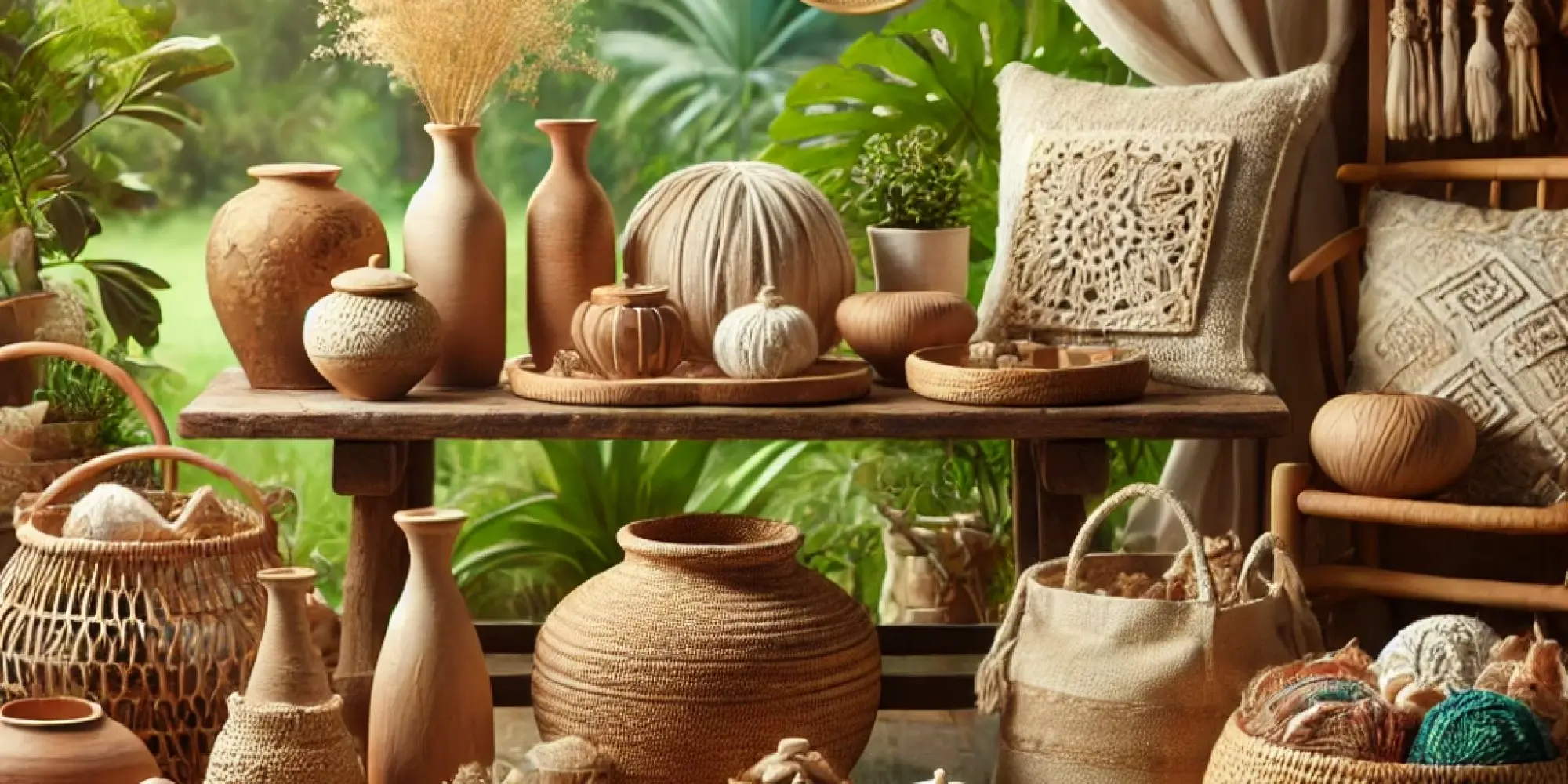
In today’s fast-paced world, sustainability has become a key concern. As people become more conscious of their environmental impact, the demand for eco-friendly products is rising. Handicrafts play a significant role in promoting sustainability by offering an alternative to mass-produced goods that often harm the environment. Hatkala , a brand dedicated to traditional and handmade products, is at the forefront of this movement, encouraging eco-friendly living through its exquisite range of handicrafts.
One of the primary reasons handicrafts contribute to sustainability is the use of natural, biodegradable, and recycled materials. Unlike synthetic products that take years to decompose, handmade items are crafted from organic materials like:
Clay and mud: Used in pottery and decorative pieces, these materials are biodegradable and have minimal environmental impact.
Wood and bamboo: Sustainable forestry practices ensure that these materials are renewable and durable.
Recycled fabrics and textiles: Many handicraft products are made using upcycled materials, reducing textile waste.
Jute and cotton: These natural fibers are eco-friendly and widely used in handmade bags, mats, and home decor.
Unlike large-scale manufacturing that consumes excessive energy and generates pollution, handicrafts rely on manual labor, reducing the carbon footprint. Traditional artisans use minimal machinery, focusing on handcrafting techniques that preserve cultural heritage while promoting sustainability. By choosing handmade products, consumers support low-energy, eco-friendly production processes.
Mass production generates a significant amount of waste, including plastic, chemical residues, and non-biodegradable packaging. Handicrafts, on the other hand, utilize locally sourced materials and avoid excessive waste generation. Artisans often practice zero-waste techniques by repurposing leftover materials into new creations, further contributing to an eco-friendly lifestyle.
Sustainability is not just about materials; it also involves ethical production practices. Purchasing handmade goods supports local artisans, ensuring fair wages and better working conditions. Hatkala works closely with artisans to promote sustainable employment opportunities, empowering them economically while preserving traditional skills passed down through generations.
Handicrafts encourage a shift toward minimalism by emphasizing quality over quantity. Handmade products are often unique, durable, and timeless, reducing the need for frequent replacements. Consumers who choose handicrafts over mass-produced goods contribute to reducing environmental waste and promoting mindful purchasing habits.
Handicrafts offer an excellent way to incorporate sustainability into daily life. From handmade pottery and woven baskets to eco-friendly furniture and organic fabrics, these products help create a greener living space. Hatkala ’s range of handcrafted items not only enhances aesthetics but also aligns with the principles of sustainable living.
Handicrafts are more than just artistic expressions; they are a means to promote sustainability and environmental responsibility. By choosing handmade, eco-friendly products, we support artisans, reduce waste, and encourage ethical consumerism. Hatkala is committed to preserving the beauty of traditional craftsmanship while fostering a sustainable future. Embrace eco-friendly living with handicrafts and make a positive impact on the planet.
When ordering over $100
Get Return within 30 days
100% Secure Online Payment
Original Product Guarenteed
